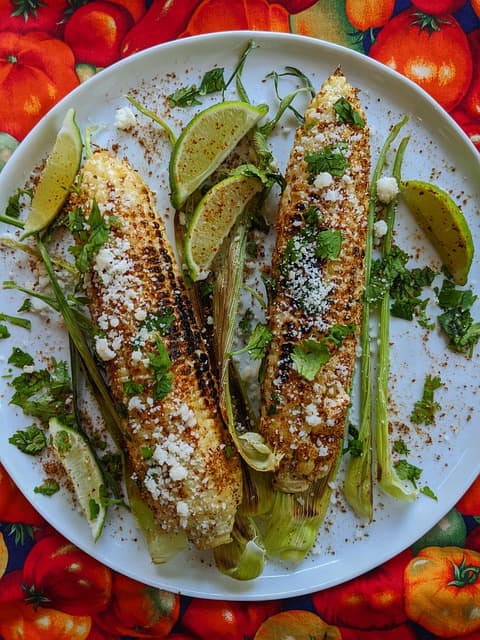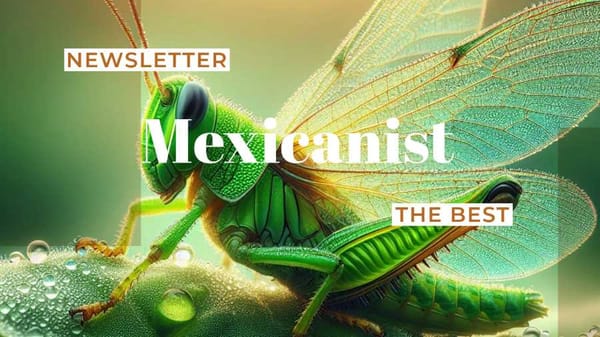Inauguration of the 'Cencalli' Museum in Los Pinos, The House of Corn
The mission of the 'Cencalli' Museum is to showcase the food biodiversity, art, and culture that revolve around the country's ancestral and contemporary culinary knowledge, based on corn, an expression, and symbol of Mexican identity.

Today, National Corn Day, a museum dedicated to corn will be inaugurated at the Los Pinos Cultural Complex, named after the Nahuatl word Cencalli, in Spanish La Casa del Maíz (The House of Corn). Its mission is to showcase the food biodiversity, art, and culture that revolve around the country's ancestral and contemporary culinary knowledge, based on corn, an expression, and symbol of Mexican identity.
This project -focused on preserving and disseminating the historical, social, and nutritional value of corn and cornfield products- not only recognizes this cereal as the most important food of Mexicans but also as the one whose presence is inseparable from our history. It also highlights the fact that traditional Mexican cuisine is part of the Intangible Cultural Heritage of Humanity.
According to Mardonio Carballo, head of the Directorate of Popular, Indigenous, and Urban Cultures (DGCPIU) of the Federal Ministry of Culture (SC), the opening of this precinct highlights the symbolic value of corn as a sacred plant, proposes an approach to it and exposes the value of the milpa is a system that marks the ceremonial calendar of various entities of the country, in addition to the promotion of the food culture of Mexico.
In an interview, the poet of Nahua origin highlighted the initiative as recognition of Mexico's 68 native cultures and their customs and traditions, with special emphasis on those flavors that forge us and make us a homeland.
"Each culture has its cuisine; it is easy to imagine the enormous gastronomic heritage that exists in the country with 68 cultures and the mestization in which the flavors that reach us day by day have been mixed and continue to be mixed," he said.
"All this set of knowledge and flavors is agglutinated under a seed: corn, which is as important for us as rice is for oriental cultures, potatoes for the peoples of southern America or flour in Europe. Corn is part of what we would have to call the seeds that did not give us a homeland".
El Cencalli or La Casa del Maíz occupies El Molino del Rey, a 16th-century construction built in honor of Charles I of Spain and used for the production of flour. Until the last six-year term, it functioned as the office of the Presidential General Staff. A total of 60 million pesos were invested in its refurbishment, museography, and cultural programming.
The curatorial script of the new museum was designed by researcher Cristina Barros Valero, collaborator of La Jornada, one of the most renowned specialists in food culture in Mexico and defender of native corn.
This space is part of a larger project that will also be located at the Los Pinos Cultural Complex: the Center for Food Culture (CCA), whose purpose is to revalue, preserve, research, and promote Mexican food culture as a central element in the planning of public policies to influence food, nutrition and health processes that favor the population.
The proposal includes the Guillermo Bonfil Batalla Documentation Center, an herbalist project, and the agroecological market El Solar, among other initiatives. Mardonio Carballo indicated that these spaces will support the sale of small food producers from different parts of the country, will host educational, artistic, research, dissemination, and promotion activities of the country's food culture, and will be the venue for fairs, discussion forums, contests, congresses, courses, and workshops.
The museum will also house a restaurant whose main ingredient will be corn. It will operate under concession and the guidelines will be announced at a later date, he said.
For the head of the DGCPIU it was urgent to create the Cencalli because many people have forgotten where the food they eat comes from and ignore who produces it, partly because of the large agribusinesses in our country do not grow the food for domestic consumption, but for export.
The inauguration of the site will be made with a gastronomic sample and an artistic-cultural festival that will begin at 11 am and will conclude at around 7 pm. There will be music and dance from Tlaxcala, the Isthmus of Tehuantepec, the Huasteca and Veracruz.
The protocol ceremony will be headed by Alejandra Frausto, head of the SC; Claudia Sheinbaum, head of the Mexico City Government; and Lorena Cuéllar, governor of Tlaxcala, the entity that will be the protagonist of the artistic and cultural activities at the venue during its first weekend.




